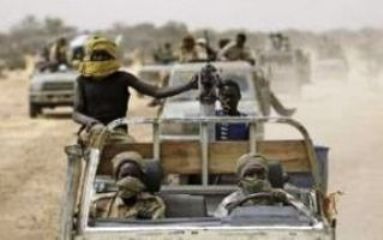Sudan, JEM rebels release conflicting statements over fresh clashes in S. Kordofan
July 23, 2012 (KHARTOUM) — The rebel Justice and Equality Movement (JEM) claims that its troops have captured three different positions in the war-torn state of South Kordofan. This is in direct contrast to a statement from the Sudan Armed Forces (SAF) who say they repelled the assailants.

Juba quickly denied the accusation as it could be considered a breach of a UN resolution demanding the two parties stop supporting rebel groups in each others’ territory and reach a comprehensive agreement before 2 August. South Sudan claims SAF bombed its Northern Bahr El Ghazal State on Friday, attacking civilians not JEM rebels.
JEM also denied they were bombarded by SAF or being in South Sudan. The rebel group said it did not intend to hamper international efforts to settle the conflict between the two countries.
However, the rebel group announced on Monday the seizure of three positions in South Kordofan, including a location not far from the Abu Jabrah oil field, in the west of the troubled state where the Sudanese army are fighting the Sudan People’s Liberation Movement-North (SPLM-N).
“JEM and SLM Unity (of Abdallah Yahyia) succeeded today, July 23rd 2012, to liberate the Towns of Tabun, Karkade and Tabaldi Oil Field, South Kordofan”, said JEM military spokesperson Badawi Moussa Alsakin.
“SAF and their allied militias have been driven out of these bases altogether”, the rebel official added.
JEM spokesperson, Gibreel Adam Bilal, told Sudan Tribune they attacked Karkade first, followed by Tabaldi and finally stormed the government troops in Tabun where the fight ended at 5:00pm local time when the Sudanese army fled the area.
JEM said they captured 26 armoured vehicles, 10 transport trucks in addition to their entire military and logistical supplies.
Late on Monday night, SAF’s spokesperson issued a statement saying that the rebels attacked Karkade and Um Showaikah of South Darfur. He further added that the fleeing rebels attacked Tabun and shelled it but the army repelled them.
Al-Swarmi Khalid added that the army destroyed 25 vehicles and killed over 50 rebels, pointing out that many other injured fighters were transported in big trucks to South Sudan for medical treatment.
Mutrif Siddiq, a member of the Sudanese negotiating team in Addis Ababa reiterated Khartoum accusations against Juba, wondering why the South Sudanese government allowed the rebels, who were based 80 kilometres from the Sudanese border, to attack the Sudanese army at this time.
Asked about the Sudanese accusations, JEM spokesperson, Gibreel Adam Bilal, emphasised that they did not come from South Sudan as alleged but they crossed from North Darfur where their troops are based.
The escalation of violence between the Sudanese government and JEM rebels in South Kordofan comes as the African Union announced the start of talks over humanitarian access in South Kordofan and Blue Nile between Khartoum and SPLM-N.
JEM and the other Darfur rebel groups have not been involved in any peace process since the end of Doha talks in July 2011. The rebel group, however, can resume discussions to join the Doha Document for Peace in Darfur (DDPD).
The SPLM-N and the other rebel groups speak about an inclusive process to negotiate the situation in South Kordofan, Darfur and Blue Nile. However, Khartoum rejects such an approach and the international community and is pushing the SPLM-N to hold separate talks as provided in the resolution 2046.
Darfur’s conflict began in 2003 but the conflicts in South Kordofan and Blue Nile flared up in 2011 as SPLM led South Sudan seceded from Sudan in July 2011 leaving the SPLM-N north of the border and without the 2005 peace agreement being fully implemented. Fighting was triggered when SAF attempted to disarm the SPLM-N and by a controversial election in South Kordofan in April 2011.
The SPLM-N formed the Sudan Revolutionary Forces (SRF) with JEM and the Minni Minawi and Abdul Wahed factions of the Sudan Liberation Army in 2011 after a framework agreement between between the SPLM-N and and the Sudanese government was rejected by Khartoum.
African mediators believe that the resolution of the humanitarian access issue in South Kordofan and Blue Nile should pave the way for political talks.
Efforts are exerted in a parallel manner to find a common ground to reconcile the position of the two sides over the framework agreement of 28 June 2011 that Khartoum rejected.
JEM rebels believe they should not be pushed aside in the step-by step diplomacy to resolve the overlapping conflicts.
(ST)
